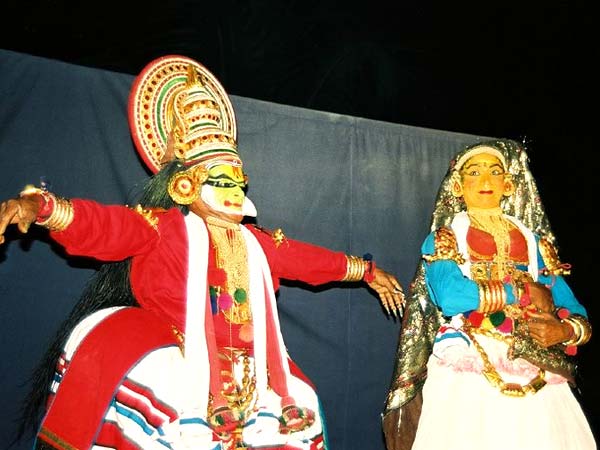Kerala is a beautiful state that also boasts of rich & truly beautiful culture. Read further to know about the performing arts of Kerala.
Performing Arts of Kerala

Surrounded by lush green trees all around, Kerala is
known for its charmingly picturesque beauty and exquisiteness. It is
inextricably linked with tradition and exhibits a lavish history and
rich heritage. Interlocked between the Arabian Sea on the West and the
Western Ghats on the East, Kerala is isolated from the other states.
This seclusion has proven advantageous to the people of Kerala, because
any political or cultural transitions elsewhere in the country have
seldom had any influence on them. Hence, the performing arts of the
state have not only survived past the eras, but flourished and thrived
in the present times.
Talking about its cultural and ethnicity, various clans and cultural
groups have influenced the culture of Kerala over a period of years. The
Aryans inhabited the place first and were later joined by the Jains, the
Buddhists and the Brahmins. These cultural invasions led to the blending
of various art forms. Koodiyattam, for instance, is a Mudiyettu Dancer
fusion of the local Dravidian culture and some Aryan influences. It has
been acknowledged as one of the 'Masterpieces of the Oral and Intangible
Heritage of Humanity' by UNESCO.
Some of the local dances such as Krishnanattam, Kathakali, Thullal,
Mohiniattam and so on, have arosed out of the fusion of Koodiyattam. The
Mudiyettu is the earliest form of a ritualistic theatre surviving in
Kerala and all later, more mature forms, such as the Koodiyattam,
Krishnanattam and Kathakali, took their cue from this. The theme is the
defeat of the demon Darika, who was terrorizing the world, by the
Goddess Bhadrakali. To know more about the intriguing rich and vibrant
culture of Kerala, read through the following lines.
Kerala Performing Arts
Mohiniattam
A feminine dance form of Kerala, Mohiniattam is performed by women and
is popular for its sensual theme. Having an extremely, slow seductive
quality, it has not only risen in popularity but also acceptability.
Kathakali
One of the most popular dance forms of Kerala, Kathakali is known as a
dance drama. It literally signifies 'Story-Play', and is recognized
worldwide for its intricate makeup and costumes. Krishnanattam - Similar
to the Kathakali dance drama, Krishnanattam displays the tale of Lord
Krishna in a succession of eight plays. In this art form, the actors
restrict themselves to particular set of facial expressions, movements
and gestures.
Thiruvathirakkali
Essentially performed by women, Thiruvathirakkali is performed on
religious occasions. Mainly practiced in the month of Dhanu, according
to the Malayalam calendar, the dance is carried out on the same day when
it is believed that Lord Siva promised Goddess Parvati to make her his
wife. Thullal - A solo performance that combines the dance and
recitation of stories in verse, for performing Thullal, there is no need
for a stage or any other form of arrangement. The dance is marked by
fast and rhythmic movements
Teyyam
Basically a form of ritualistic dance that is sacred as well as
artistic, it shares a strong bondage almost all the castes and classes
of the Hindu religion in this region. A corrupt form of Daivam or God,
the dance itself is considered as God.
Chakyar koothu
Similar to mono act and a stand-up comedy act, Chakyar Koothu is a
highly refined art form. It mainly narrates stories from Hindu epics
such as Ramayana and the Mahabharata.
Koodiyattam
The only dance ever to be recognized by UNESCO as part of its effort to
safeguard expressions of oral heritage and traditional culture,
Koodiyattam is mainly performed in the Sanskrit language in Hindu
temples and is assumed to have a history that dates back to 2000 years.

